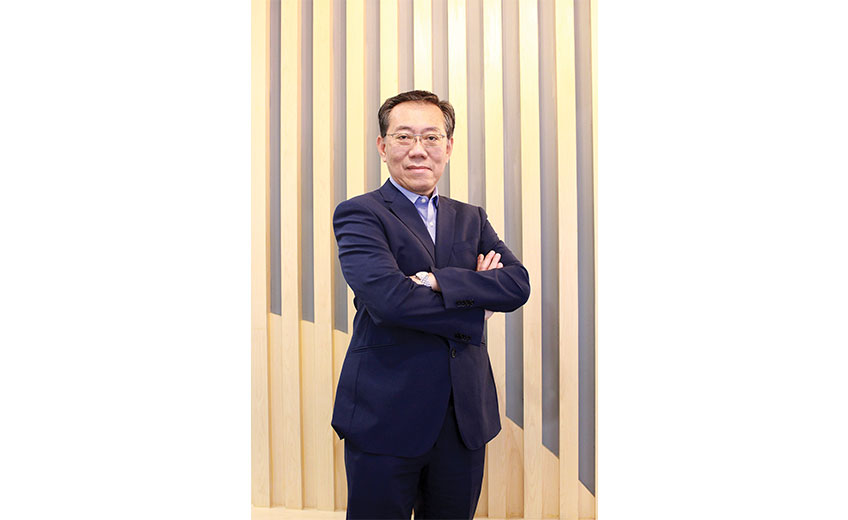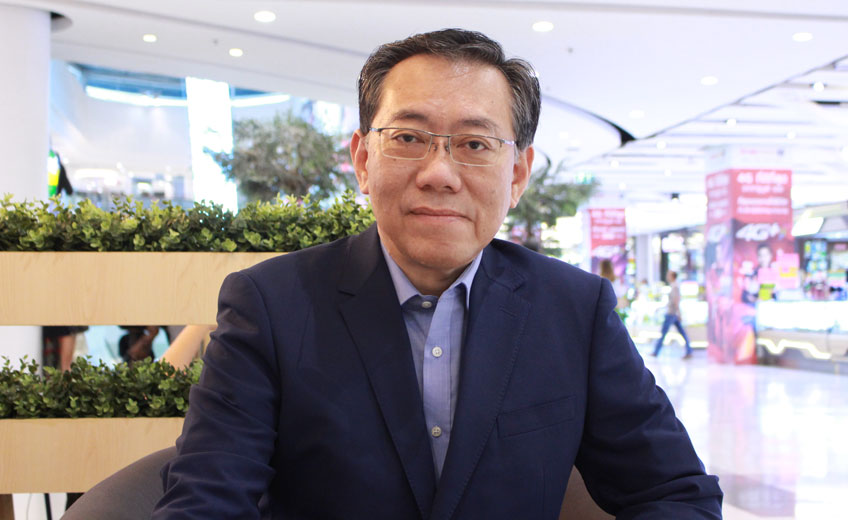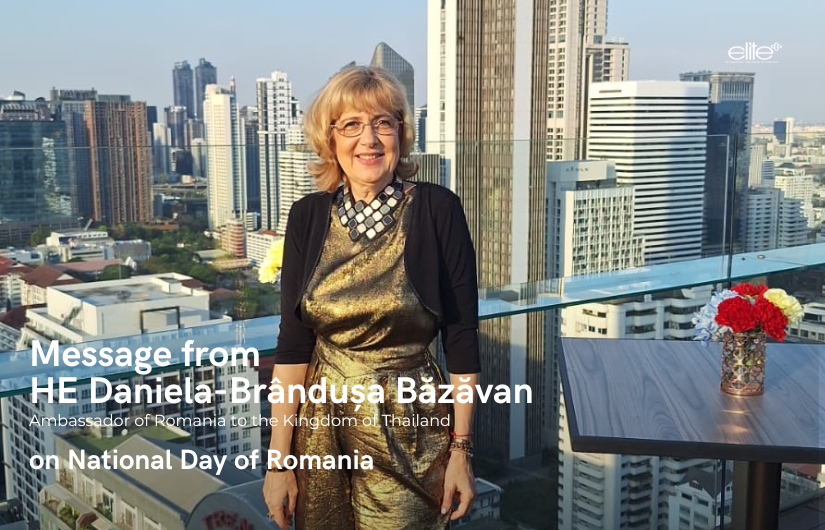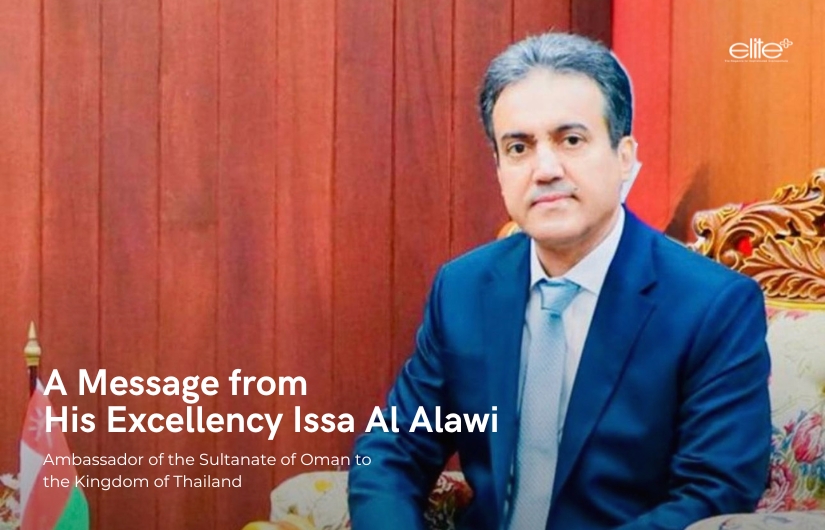From poverty-stricken socialist country to thriving, technologically advanced nation, China over the past decade has become one of the world’s most attractive but arguably challenging destinations for foreign investment. Considering the large and diverse population that brings seemingly limitless business opportunities, investors from all over the world venture into China despite strict government rules, the language barrier and steep cultural differences. One of the successful international ventures that has been in China for over two decades is Saha-Union Investment (China), a subsidiary of top Thai conglomerate Saha-Union PCL, which thrives mainly in the Chinese energy market.
“When we started out, we had more than 10 power plants in different parts of China,” said Chen Tu Min (陈图敏), Director & General Manager of Saha-Union Investment (China) and vice chairman of the Thai Chamber of Commerce in China, in an exclusive interview in Shanghai for Elite+. “Over the years, the Chinese government has bought back some of the plants and we are now left with three venture energy companies in the energy business to operate: two co-generation plants in Zhejiang and one in Yunnan.

“Saha-Union Investment (China) works not only in energy but also textiles, chemicals and real estate. The energy business generates most of the income, roughly 200 million yuan annually. The electricity is sold to the government, whereas the steam is sold to general industrial plants. We sell steam to adjacent factories that require thermal energy to operate,” the executive said.
Saha-Union Group began operations in 1961 as a manufacturer and a distributor of zippers under the Venus trademark. The company later expanded to other textile businesses and is now a leading manufacturer and distributor of integrated textile products. The company further expanded to businesses with more potential and diversity, establishing other companies over time.
Mr Chen started working with Saha-Union in Thailand in the thread department, rising up from junior positions to become one of the executives. Fluent in Mandarin, as he had previously lived in Taiwan and Shanghai, he was later transferred to oversee Saha-Union investment in China and was appointed general manager of the group, and chairman of the power plants.
“Back then, when China initially showed interest in foreign investment, Saha-Union was welcomed because we were known as an efficient and straightforward company,” Mr Chen explained. “We respect and adhere to the laws, rules and regulations concerning our businesses and we honour contractual commitments we have with our partners. If you want to go far and be successful in this market, you have to be completely trustworthy.
“We work very closely with them and we do exactly what they say. In terms of the energy business, we develop our own model, and of course it has been implemented according to Chinese government regulations. Many years ago, China established their economic status and needed energy and power to boost it. Many power plants were allowed to operate in the early days but later the new regulations were enforced to increase capacity and decrease the number of small power plants. This goes in our favour because we operate co-generation plants that produce both electricity and steam – just as the regulations require. This is why we sell more steam than electricity these days. We are currently increasing production capacity of the plans, and increased annual growth is expected every year.”
Apart from the rules and regulations, investors need to adjust to the unique Chinese corporate culture, Mr Chen said. “I first came here when China wasn’t this developed. Although I don’t have the language barrier because I can speak Mandarin, it took me a while to assimilate the culture, especially to really understand what people mean when they say, or don’t say, anything. I had to adjust the way I live, eat, interact and work with the Chinese people that have so much respect for labourers.
“A lot of Westerners that come and work in China don’t get this, and they use their own references and values to judge China and the Chinese. Chinese call themselves a special socialist society; they have special traits and certain habits. Sometimes we listen to what they say and have to interpret their meaning. Chinese are all about face, if we give them face, it means we give them respect. Many say doing business with the Chinese, you must have guanxi, which is relationship, which is true in many cases, and it’s not easy.”
Mr Chen also shared his insight that China still has plenty of room for Thai products, especially for agricultural and consumer goods, thanks to the special, long-lasting bond the Chinese have with Thailand. “Chinese see Thais as brothers and sisters, and they love our products. They prefer to travel to Thailand than to Japan and Korea where they had historical conflicts, and 15 million Chinese come to Thailand every year. Our cultures are very close because Thailand embraced Chinese immigrants that fled China over the centuries.
“Moreover, Thailand is probably the only ASEAN country that does not discriminate against Chinese people, unlike Indonesia and Malaysia. I’ve heard that Chinese in Indonesia try not to show that they’re Chinese, like adopting local-sounding names, because Indonesians don’t like them. In Thailand, Chinese are welcome to live, settle and make a living, and they are even allowed to become Thai. That’s why we’re seen as family to them.”
Looking forward, it seems China is keen to open up to the world and attract global trade partners with the revival of the ancient Silk Road trade routes that connected the East to the West. “Instead of developing marine transport, they revert back to the old way when merchants actually traded goods,” Mr Chen explained. “China is in need of technological goods and raw materials because it is considered the factory of the world. They would buy raw materials like iron, coal and gas from other countries, and import their products to them. I’m sure that the area along the new Silk Road will be greatly developed to boost trade and industrial capacity, and it is sure to improve the economy of a great many nations.”




















































































































































































































































































































































































































































































































































































































































































































































































































































































































